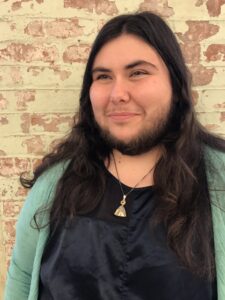Eli Nelson is a kanien’kaha:ka critical theorist and historian of Native science. He is an assistant professor of Science, Technology, and Society (STS) at MIT. Nelson holds a BA in Natural Sciences from Shimer College (2012) and an MA (2013) and PhD (2018) in History of Science from Harvard University. Prior to coming to MIT, Nelson was an assistant professor of American Studies at Williams College. He is also a co-founder of the Center for Black, Brown, and Queer Studies, where he directs the Indigenous Studies lab.
His first book manuscript, Sovereign Knowledge: Red Progressives and the Becoming of Native Science (under contract with Johns Hopkins University Press) explores the science politics of Native activists in the United States during the mid-19th and early 20th centuries. He details how doctors, scientists, and laborers were foundational to the making of what he calls settler sciences. A range of Indigenous people contended with settler sciences– from anthropology and medical science to geography and ecology– eventually claiming and deconstructing these disciplines in the making of a new field of Native science in the later 20th century. In the form of critical biographies of well known Red Progressive figures, such as Elly S. Parker, Carlos Montezuma, Susan and Francis La Fleshe, and Laura Cornelius Kellog, Sovereign Knowledge reaches across multiple scientific disciplines and Indigenous national histories. Spanning from the Civil War to the beginning of World War II, this period witnessed the proliferation of civilian scientific disciplines and institutions that constituted the structures of settler epistemic governance. In the shadow of these structures and in the wake of reservation confinement and boarding school eduction, Indigenous laborers and professionalizing elites differently negotiated their roles in “failed” land improvements, never quite “objective” research studies, and “incomprehensible” methodologies. In the stories of such failures and the intimate production of knowledge on and through Native bodies that they entailed, Nelson finds that Indigenous knowledges were neither preserved in stasis nor subsumed during this especially violent transitional period. Instead these knowledges flourished and flexed, unseen through rigid settler disciplinary, geographic, and gendered prisms.
Nelson’s research traces how Indigenous knowledges have been produced and embodied under and outside of settler and postcolonial contexts. He has published on topics ranging from Indigenous cyborgs to the history of Kanaka Maoli canoes. You can find a selection of his publications here. Nelson’s research has been supported by the American Philosophical Society, Luce Foundation, Newberry Library, Smithsonian, and Williams College Oakley Center, among others.
